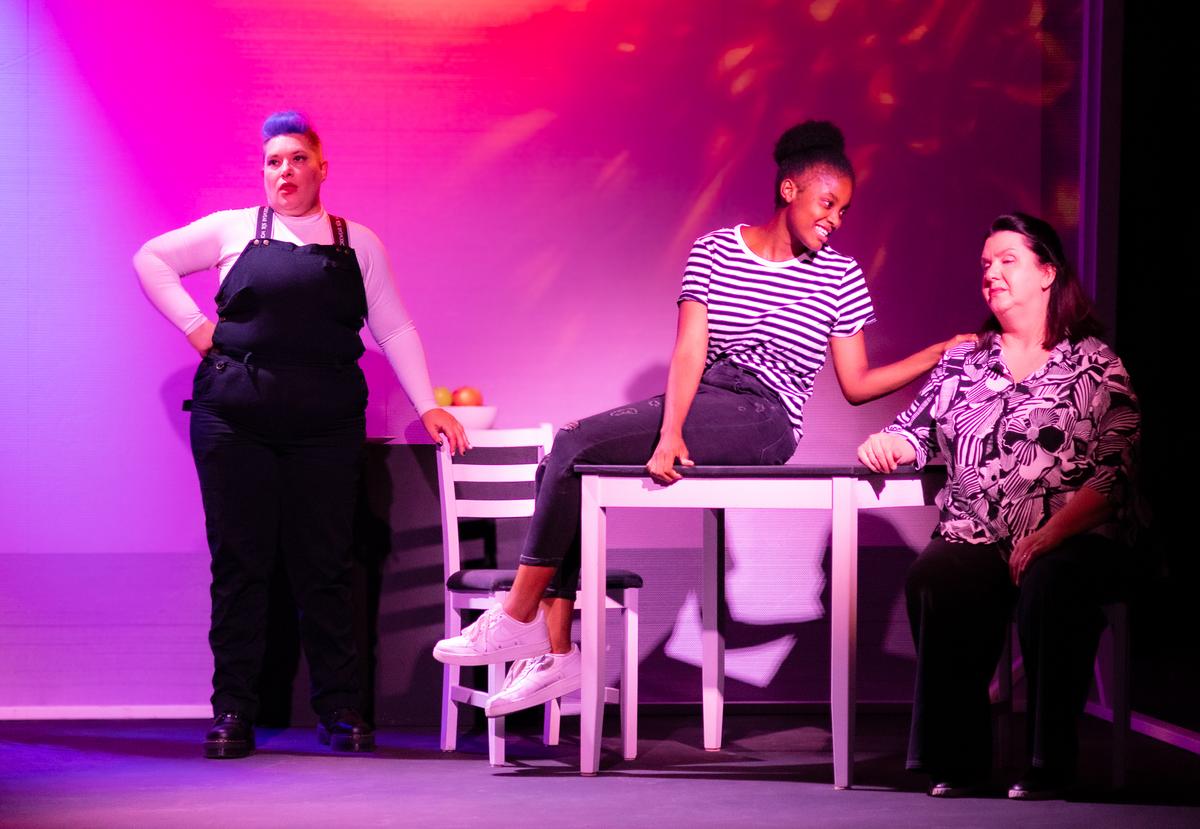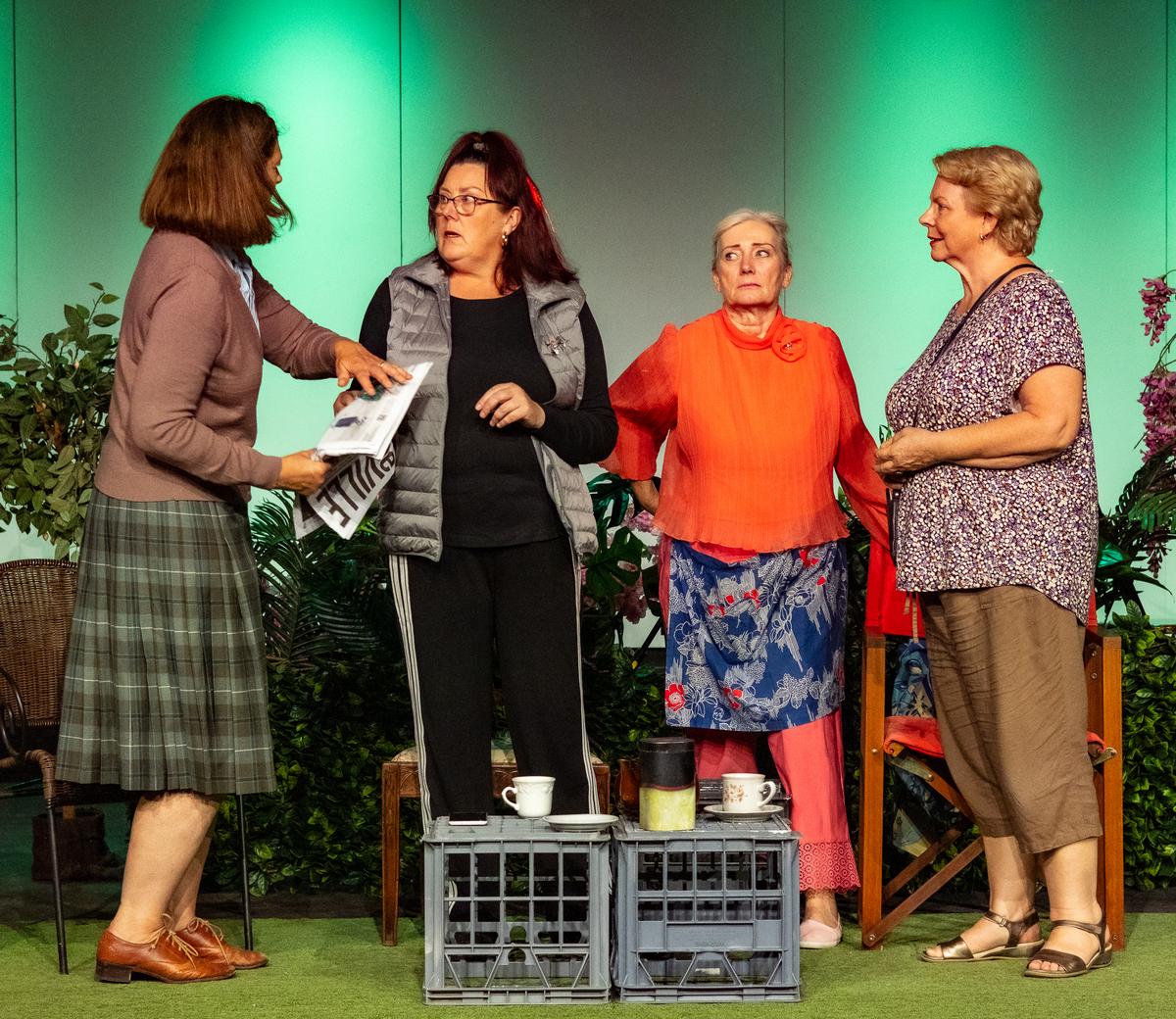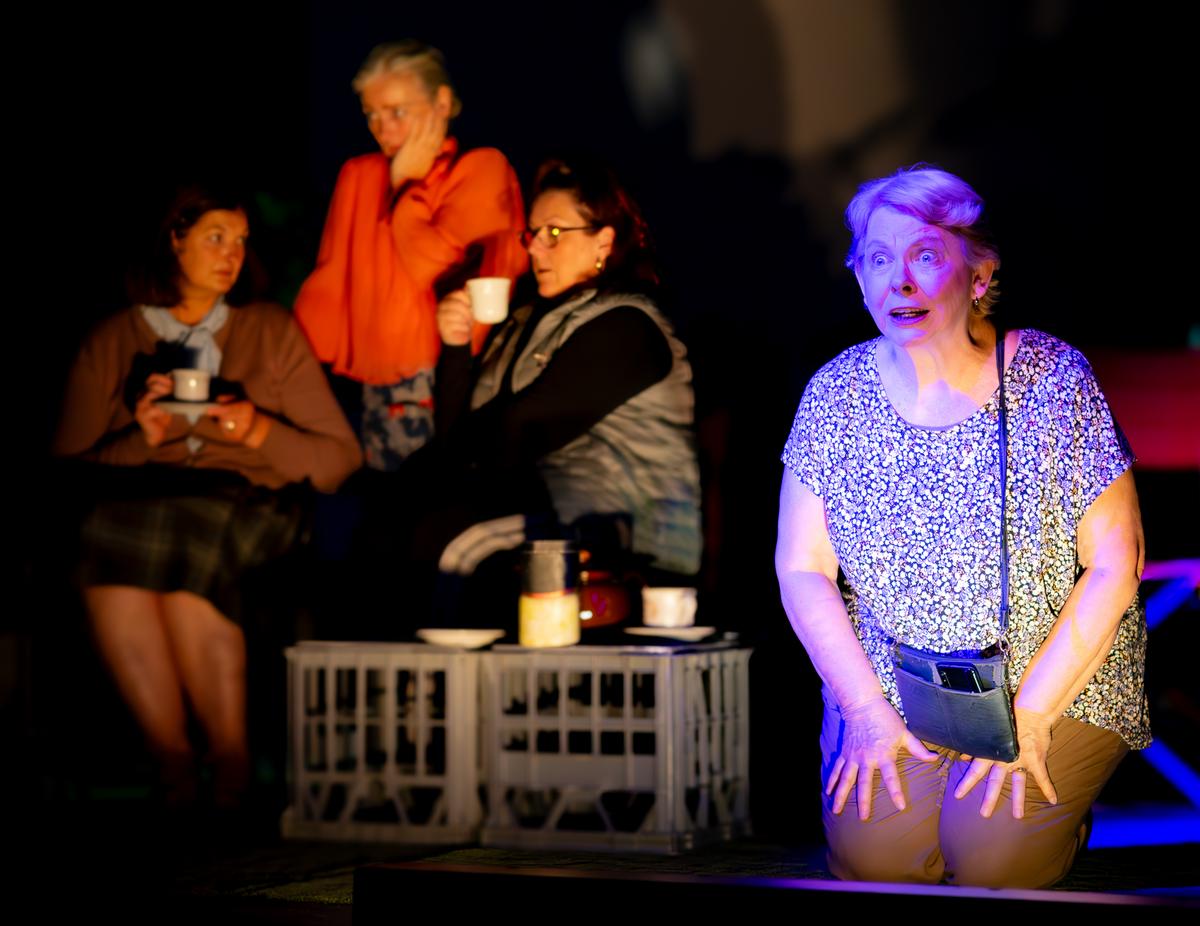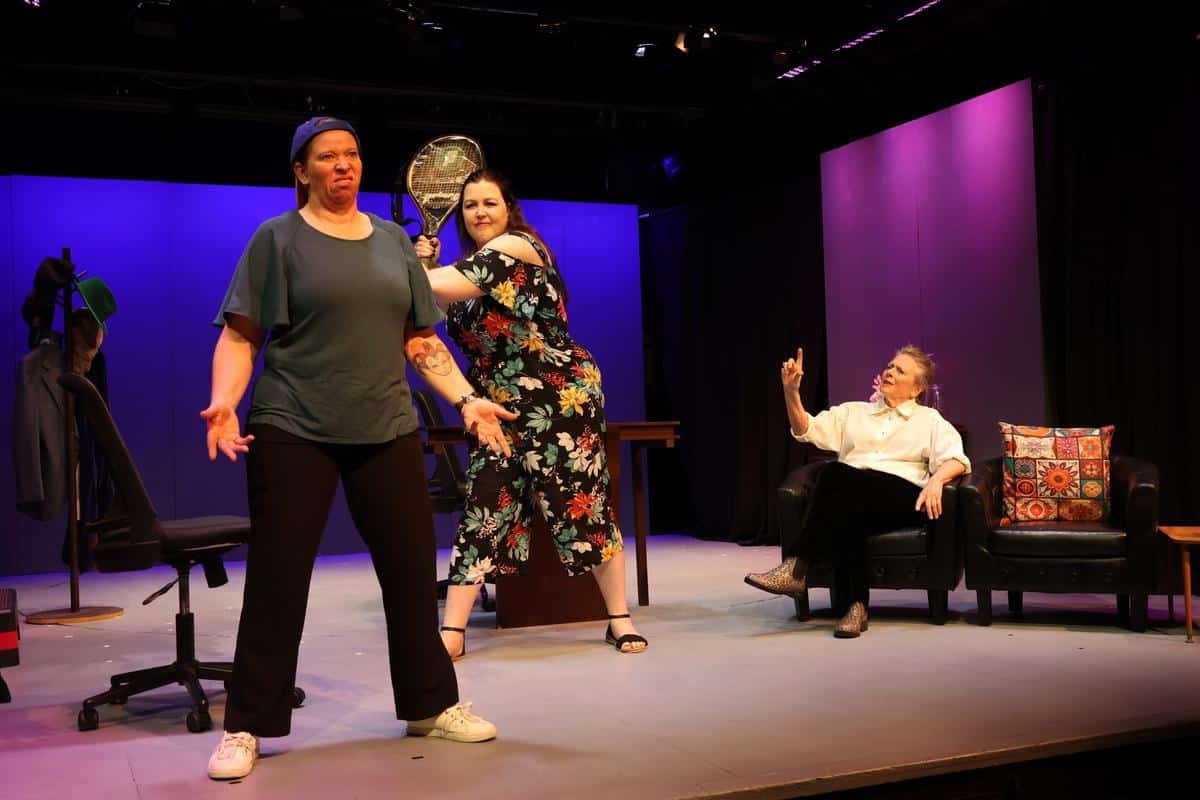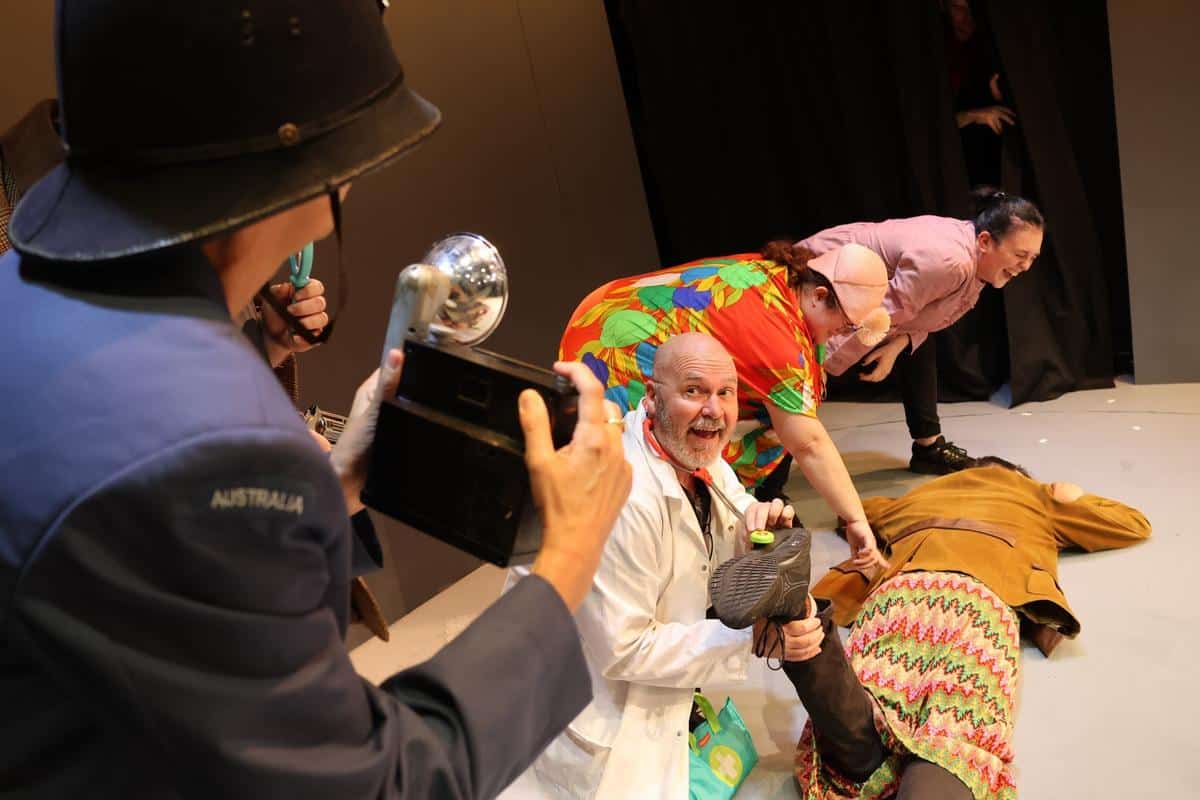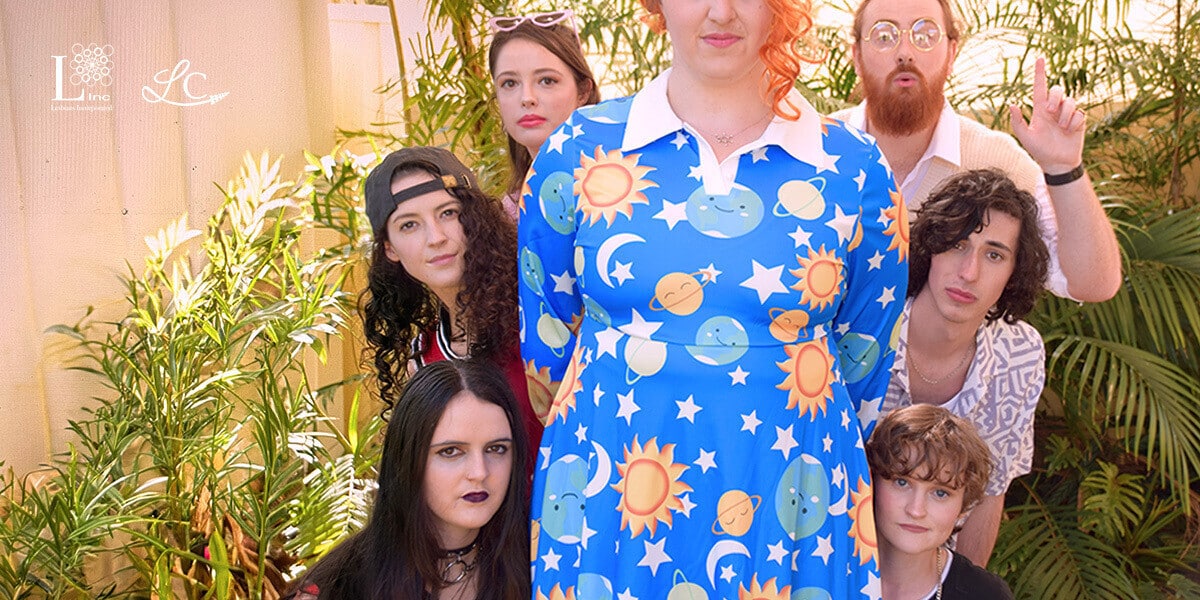Presented in under 6 weeks, Limelight Theatre has shown that diamonds are made under pressure. Tick, Tick… Boom! is a slick and polished performance in all elements of production.
Telling the story of the life of RENT composer Jonathon Larson, this show is full of heart, humour and a healthy dose of reality.
Jordan Richards leads the cast as Jon, offering an authentic and heartfelt performance with strong vocals throughout. Though his voice did seem fatigued towards the end, I feel it served the character well as it mirrored his emotional arc.
Ellie Coburn shines as Susan, genuine and caring, working well with Richards whilst also showing her own vocal prowess. Best friend and artist-turned-businessman Michael is given life by Blair Price-Morgan – albeit a little young for the character – he too, was consistent throughout.
While this show is typically played out with trio, this particular production was rounded out with a small but sharp ensemble that filled out the wealth of smaller roles with great enthusiasm, each putting their all into their overzealous caricatures.

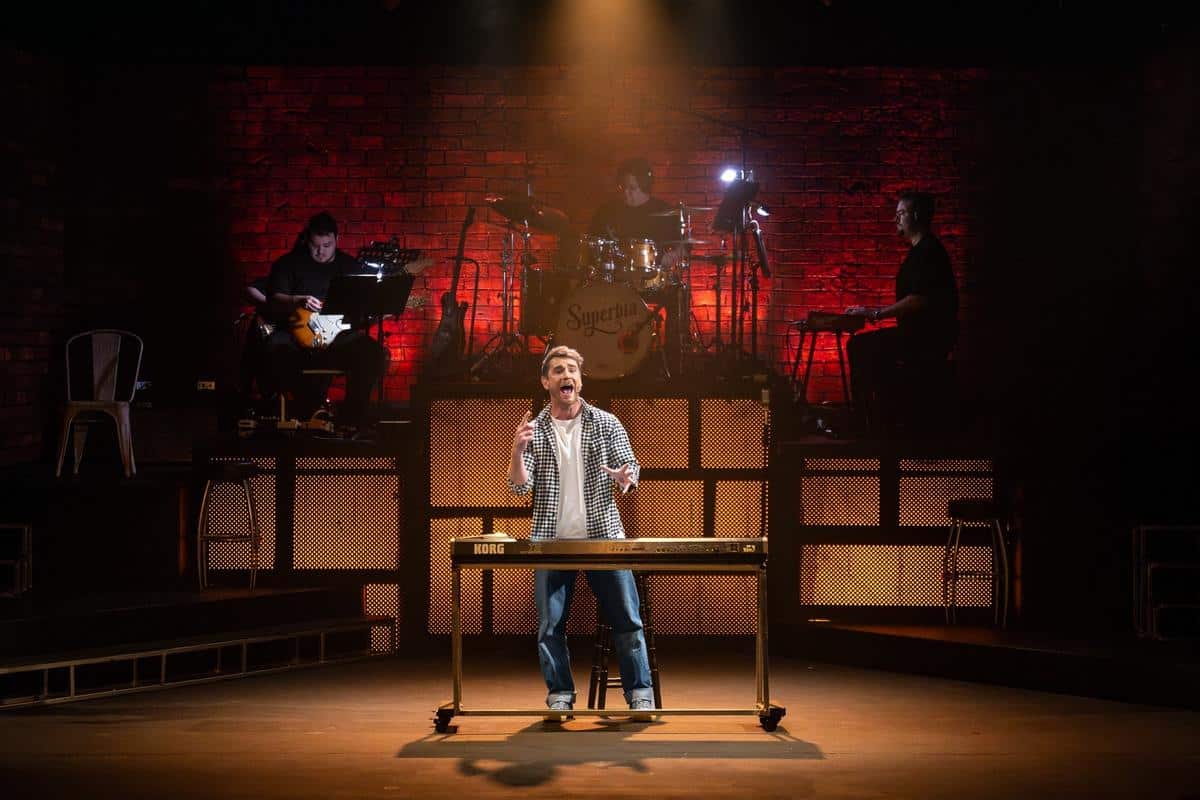
Personal favourites included Aliesha Archer’s talent agent Judy Wright, and Jake Battle as Jon’s father – both a great laugh. Georgia Goff enjoys her moment in the spotlight as Karessa Johnson singing a beautiful (duetted) rendition of ‘Come to Your Senses’.
Caleb Stevens’s choreography (which also doubles as ensemble) is simple but effective. It adds just the right amount of movement to build up moments without distracting from the main story.
But the testament must also go to the cast and the band, who are clean and concise under the guidance of Jasper Cruden.
I was also a big fan of the lighting design (Matthew Roberts) built into the cubic set. It was a fun and welcome surprise and added great flare to the otherwise simple brick set design.
Overall, I was highly impressed with the quality of this production from start to finish and highly recommend you snatch up a ticket to the remaining performances.
To book tickets to TickTickBoom, please visit https://www.taztix.com.au/limelight/
For Phone Bookings TAZ Tix @ 9255 3336
PERFORMANCE DATES:
FEB 27, 28, MARCH 1, 2*, 6, 7, 8
Recommended MA 15+
Times: Evenings at 7.30pm, *Matinees at 2pm
Tickets: $37 Adult, $32 Concession (seniors/students),
$30 Members, Groups 20+ $32 each
processing fees apply


